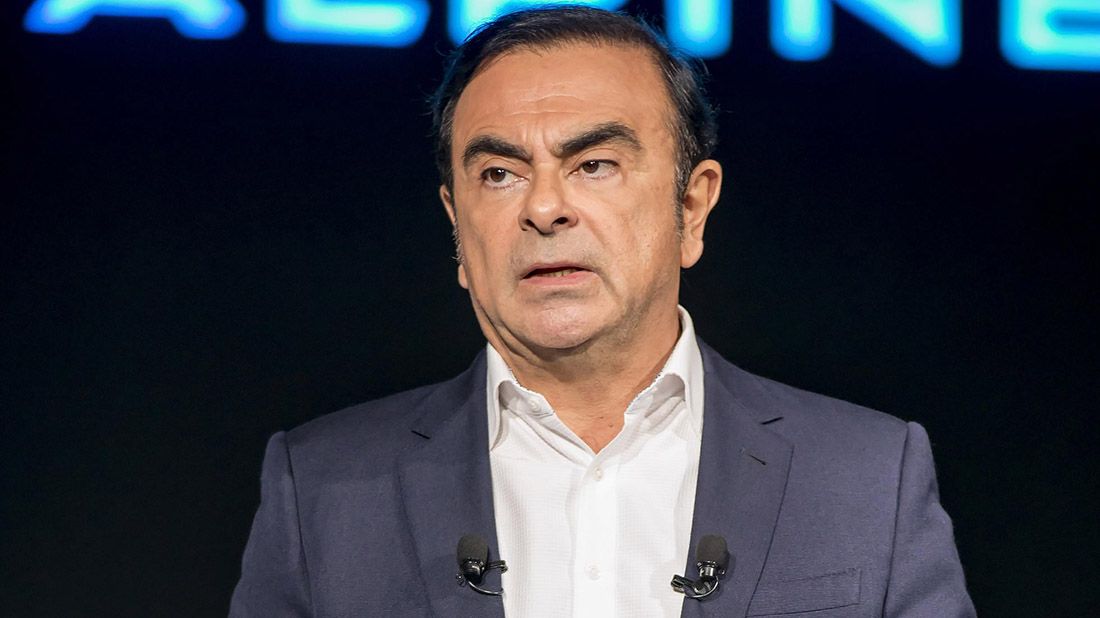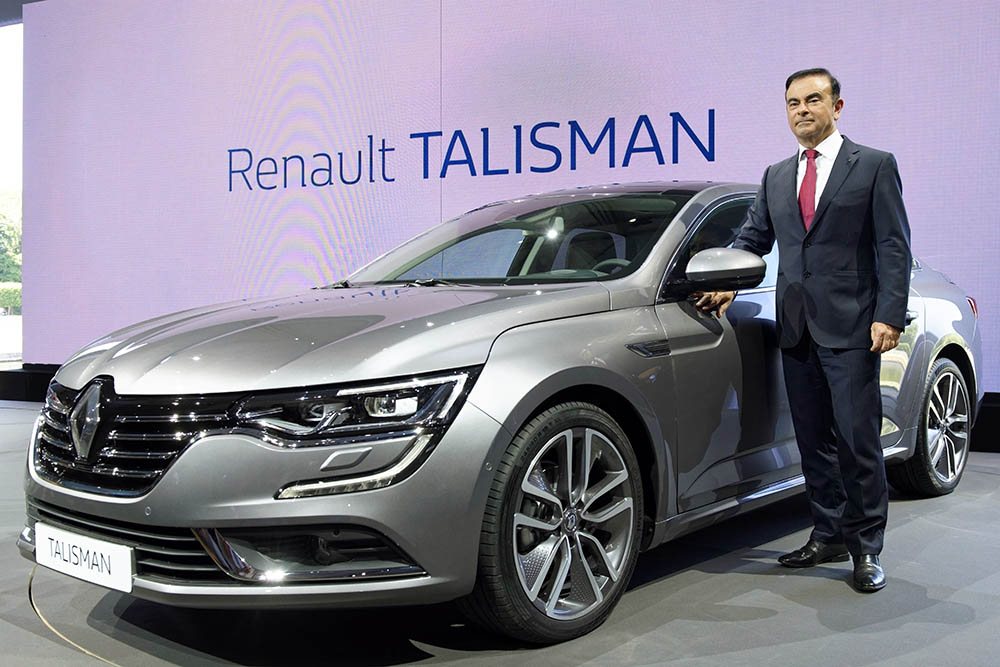The boss of Nissan has been arrested

Carlos Ghosn, one of the most successful, imaginative and charismatic leaders in car-industry history, has been arrested in Tokyo and is being fired from his role at the top of Nissan. His alleged offence? Personal financial irregularities. These include ‘under-reporting his compensation’, and also using company assets for his personal benefit.
After an accusation from a whistleblower, Nissan has been investigating Ghosn, its chairman, for many months. Nissan also accused another board member, Greg Kelly, of being involved.
Carlos sits at the top of related companies Renault and Mitsubishi. His position there must be in doubt too; at Renault he’s Chair and CEO, and Renault has convened an emergency board meeting.
Says Nissan. “The investigation showed that over many years both Ghosn and Kelly have been reporting compensation amounts [to] the Tokyo Stock Exchange … that were less than the actual amount… of Carlos Ghosn’s compensation. Also, in regards to Ghosn, numerous other significant acts of misconduct have been uncovered, such as personal use of company assets.”
In an amazingly emotional display, Nissan’s CEO Hiroto Saikawa told reporters, “I have to say that this is a dark side of the Ghosn era which lasted for a long time. Beyond being sorry I feel great disappointment, frustration, despair, indignation and resentment”.
This is all a bit staggering given what car bosses are paid, both in cash and shares. Official numbers show he was paid $10 million (RM42 million) by Nissan in 2016, plus several more million by Renault.
However, the case hasn’t yet come to court, so he may be exonerated.
Anyway, if Ghosn is to disappear beneath the choppy waters of history, it’s worth first recording what he has achieved.
Born in Brazil of Lebanese descent, educated in France and fluent in countless languages and cultures, Ghosn rose to prominence at Michelin and earned a reputation for cutting costs.
In 1996 he went to Renault. At the time it was bloated and struggling, and he took a sword to the inefficiencies and turned it into something of an industry model in a very few years.

By 1999 Renault formed an alliance with Nissan, and Ghosn was sent to Japan. Again he found a company struggling with heavy debt. He formed a turnaround plan double-quick.
I remember being in the room when he announced his Nissan Revival Plan in Tokyo in October 1999. (OK, was a big room.) The place was simply electrified. He proposed closing factories and cutting thousands of workers from the payroll. You just didn’t do this in Japan.
But at the same time he proposed positive news. I particularly remember him saying, with characteristic hard emphasis, “there is no problem – no problem – in the car industry that good cars cannot fix”.
And he set the company off to making good cars. Its fortunes were reversed. In very short order he became a national hero in Japan. He became fluent in the language. He was the hero of a widely circulated comic-book series.
He launched the R35 GT-R, the Qashqai and the Leaf, and revived the Zed. He pushed for affordable autonomous cars too. He poured big money into Infiniti. He isn’t a classic ‘car guy’ but he gave freedom to those in the company who had that flair.
His philosophy of flat, meritocratic structures and strong inter-team co-operation was spread across to Renault. He had the knack of making two manufacturers co-operate without losing their individual identities, either in their cultures or their cars.
Within a few years he’d also formed an alliance with Daimler-Benz. This has been another success. Doubts were raised whether the Germans could do co-operation, because of their previous catastrophic takeover of Chrysler. But Ghosn had an ally in Benz’s Dieter Zetsche and they figured out a way.
In the past couple of years, Mitsubishi, another struggler, was added to the Alliance, and Ghosn went there to be chairman.
In Britain, Ghosn was awarded an honorary Knighthood for the success of the Sunderland plant. He famously clashed with Governments here over Britain’s decision not to enter the Euro, and later to leave the EU. But in spite of his sabre-rattling, the Sunderland plant remains busy. Because it makes, efficiently, cars people want to buy. Ghosn’s formula in a nutshell.
So, this has possible huge repercussions for the alliances he formed. It’s clear there was anxiety at the concentration of power in Ghosn’s hands. As Nissan’s CEO said yesterday, “too much authority was given to one person in terms of governance”.
- Paul Horrell

